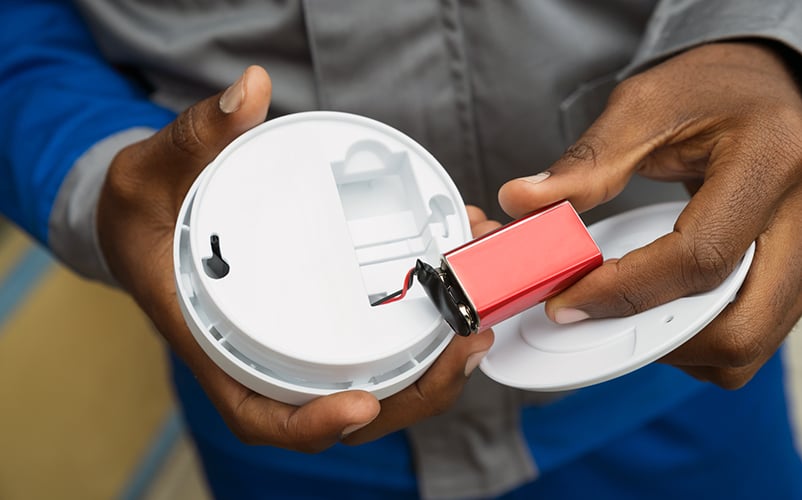We’ve officially surpassed the time of year when the afternoon feels like the middle of the night. Just as the weather and the time changes, so should the batteries in your smoke alarm.
Batteries should be changed twice a year unless you’re otherwise notified by that famous “barking chirp.” The only other exception is a smoke alarm with the 10 year sealed batteries. These require the entire smoke alarm to be replaced every 10 years and reduces the chance of alarms chirping to indicate low batteries (or for no reason at all, which every so often seems to be the case). If neither of these are the case in your home, smoke alarm batteries should be changed every 6 months (twice a year).
Smoke Alarms Exist for our Protection and Safety.
Most fire fatalities occur at night while victims are sleeping. The harmful smoke and toxic gases released in a home by fire can cause people to sleep more deeply, posing a dangerous threat.
The noise from a smoke alarm is meant to be deafening in order to wake up the heaviest sleeper. This doubles the chances of survival by increasing the amount of time residents have to escape a house fire.
“There’s no way to predict when a home fire will occur, so even one night without an operational smoke alarm can be dangerous,” says Gary Farley, Tennessee Assistant Commissioner for Fire Prevention.
Smoke Alarm Safety Guidelines
- Install working smoke alarms inside and outside of every sleeping area.
- There should be at least one alarm on every level of the home.
- Make sure everyone can hear the alarm and know what it sounds like.
- Test alarms once a month using the test button.
- Replace the entire alarm if it's more than 10 years old or doesn't work properly when tested.
- Create a fire escape plan with two ways out of every room and a common meeting place.
- Share and practice the plan with everyone!
- When a smoke alarm sounds, get out of the home immediately and go to your pre-planned meeting place to call 911.
For more tips on smoke alarms and keeping your family fire safe, click here.



